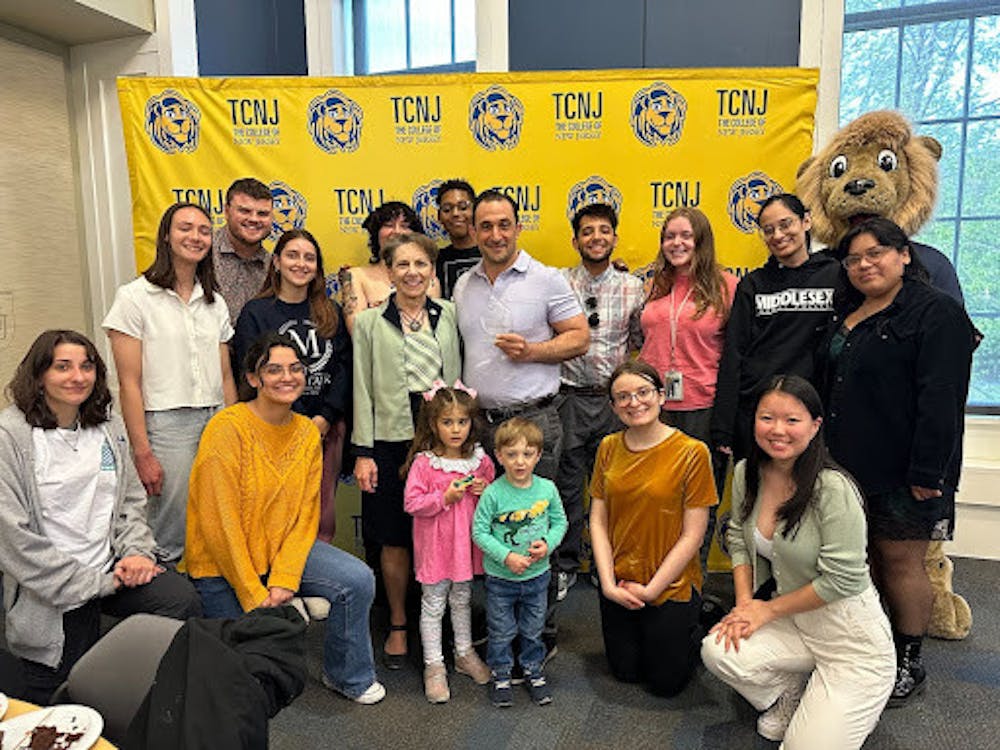By Vincent Utz
Correspondent
As mental health issues continue to be prevalent among college students, it is important for students to understand the services their college provides. On campus, the Collegiate Recovery Program promotes the wellness of students who are struggling with addictions or are in the recovery process. Eric Van Eck, a peer recovery specialist at the College, has an incredibly inspiring story in his journey against substance use and towards the priority of mental health.
Van Eck is no stranger to the community at the College. Initially attending in 2006 as a nursing major, he, like many other college students, started experimenting with substance use. Over time, his initial sources of stress relief began to take control of his mind, creating the early signs of an addiction.
By his junior year, the onset of a breakup, as well as joining a fraternity, accelerated the progression of his addiction to the point that it became an illness. He began to show signs of an addiction, such as losing motivation in both school and his family.
“It was getting worse and worse, and it really was without my permission,” said Van Eck. “The addiction almost felt like it snuck up on me. I wasn’t getting any of the benefits anymore like I used to get. It was only causing me problems.”
In 2012, by the end of his junior year, his illness took over so much of his life that the College academically dismissed him.
But this was not the end of his story. The pivotal moment in Van Eck’s life came five years after his dismissal.
After being dismissed, he began treatment, which consisted of both setbacks and advances, like all recovery processes. As he continued his treatments, his withdrawals continued to get worse and worse, “The kicker was that I wound up being in a hospital due to severe withdrawal,” Van Eck said. “I had a moment of clarity… it all happened in a blink of an eye.” This moment sparked a new chapter in his life.
During treatment Van Eck’s undiagnosed substance use disorder was treated, and with the help of friends and family, he had a new mission: to come back to the College. “I wanted to finish what I started,” he said.
Through volunteering at a local hospital and proving that he could live a sober lifestyle, he was accepted back into the College in 2017. Van Eck completed a bachelor’s degree in public health.
After graduating in 2018, Van Eck was given the opportunity to apply for a vacant role within the Recovery and Prevention program. Having credentials as a certified peer recovery specialist, he was hired and is still employed at the College today.
Once Van Eck returned to the College, he utilized a new program for substance free housing called Lion’s House, which was the result of a 2015 Collegiate Recovery Program grant from the state government.
Through Lion’s House, college students struggling with substance abuse or on their way to recovery have the right housing environment to do so. In addition to substance free housing, the program provides counseling services.
Now, the recovery and prevention program has changed to become even more impactful in the lives of college students.
“Since I have been working here, our collegiate recovery program has expanded in many ways…” said Van Eck. “We have our community of students, the collegiate recovery community, that is a group of really inspiring students who in some way or another identify with the recovery process.”
This recovery program is no longer only for people who struggle with substances, it now includes many different types of issues. Van Eck stated, “We have substance use recovery, we have members in mental health recovery, self injury concerns, eating or body image issues, gambling or gaming addiction, problematic pornography use, PTSD recovery… and then there are members of our community who identify with recovery through the problematic use of their loved ones.”
Both allies and people in recovery may be treated through structured recovery meetings, which are peer-led support groups that occur twice a week in the recovery lounge in the Recreation Center. There are general body meetings in which events are planned as a student organization.
“We do tabling activities, overdose reversal training, we have a spiritual retreat we go on every summer, we go karting, ice skating…we do a lot of community stuff together,” Van Eck explained.
The most important part is for people not to feel alone.
“Anybody is welcome, if you’re a TCNJ student, we want you to come out, we want you to experience our community, they can always reach out to me, and I’ll connect them to students,” Van Eck said. “I meet one on one with students who are in or are seeking recovery, and we have a couple of other coaches that do that as well. That's part of our program.”
You can find the Collegiate Recovery program on Instagram @tcnjcrc.







